- List of pest-repelling plants - (https://en.wikipedia.org/wiki/list_of_pest-repelling_plants)
Mosquito-borne Diseases
Mosquitoes are carriers of various diseases like malaria, dengue, and chikungunya virus that have caused health issues and deaths among wide population around the world.
Global warming, unplanned sewerage systems and insects developing resistance to available medicines, have made the battle against pests and mosquitoes a challenge. As an answer to the threat of mosquito-borne diseases, science developed N-diethyl-meta-toluamide, (DEET) chemical based mosquito repellents. However this chemical is toxic for humans and is known to cause rashes, anaphylactic shock, seizures out of the many side effects, when used in high concentration.
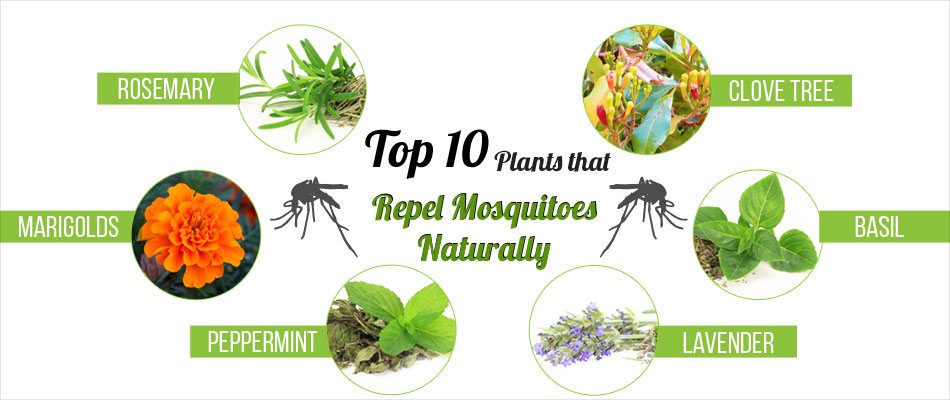
Various plants are used as essential oils, sprays and ointments. However the mere presence of certain plants can naturally keep mosquitoes at bay in a given area.
Mosquito repellents prove to be a double-edged sword. Its toxic fumes might help ward off pests, however it proves more deleterious for humans if used in high concentrations. All of us wish to spend time in the open, time with oneself, to walk or to meditate, to read or to admire the milieu around without having pesky mosquitoes buzzing around. It is not possible to carry coils belching toxic fumes, everywhere you go, neither is it sensible to use expensive, chemical based mosquito repellent patches. Growing plants help reduce carbon emissions, as well as mitigate the mosquito menace both indoors and outdoors. These pest repellent plants are easily available in any nursery or online shelves.
Pest Repellent Plants
Citronella is a perennial clumping grass which emits a powerful aroma. The aroma overwhelms other scents, and keeps mosquitoes from being attracted to areas around it. It requires partial shade to full sunlight. Citronella is found in many mosquito repellents. The 5 or 6 feet tall plant is generally grown on garden beds, but can be grown in pots and placed near a patio or porch.
Cymbopogon nardus or Citronella winterianus are the preferred variety, though there are various species to choose from depending on the locale. It repels insects and keeps cats away. This low maintenance plant, is meant for outdoors and for warm climates. Citronella is not grown in cool or freezing climate. Its popular, common names include lemon grass, fever grass, barbed wire grass.
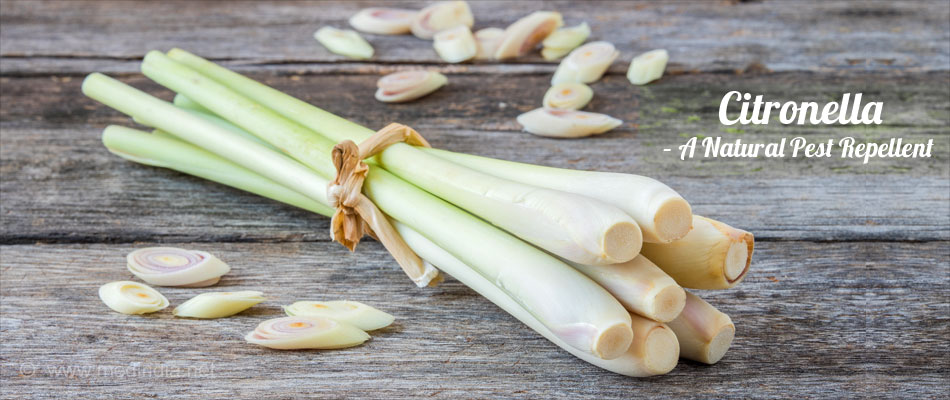
Catnip
This pest repellent plant is also known as Catmint. It is an aromatic perennial plant of mint family Nepeta. Nepetalactone, the main ingredient in catnip or Nepeta cataria is 10 times more effective than DEET, the chemical component of mosquito repellents. It grows best in well drained soil from stratified seeds. It grows up to 3-4 feet tall, and can be grown in pots. It can be grown outdoors in full sunlight, as well as indoors under standard fluorescent lamps. It has small, white and purple-spotted flowers. It repels ants, beetles, bugs, aphids, cockroaches but attracts cats. Catnip is a drought-tolerant and low-maintenance plant.
Marigolds
Marigolds are natural mosquito repellents that keep bugs and aphids away. These annual plants can be kept both indoors and outdoors. Marigolds contain pyrethrum, a component that is found in many insect repellents.
Lemon Balm
Lemon balm or Melissa officinalis is a perennial plant, of the mint family and requires partial shade to full sunlight. It is also known as horsemint. It is easy to grow and is drought resistance. It is a great choice to keep away mosquitoes. It also repels ants and flies. It has a lemon scent with a tinge of mint. Herb Society of America recommends the plant be grown outdoors. It is an outdoor plant with unbridled growth. It can be grown in small vessels.
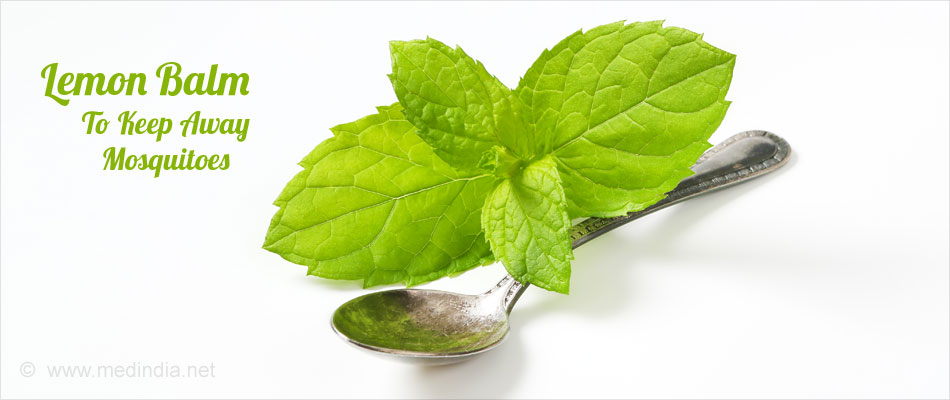
Basil
Basil can also be used as a pest and mosquito repellent plant. It can be kept both indoors and outdoors. It repels carrot flies, asparagus beetles and whiteflies.
Lavender
Lavandula angustifolia is a 1.5 feet tall evergreen perennial plant. It can be planted in pots and garden beds. It is a natural mosquito repellent. It has a soothing and calming aroma. It repels moths, fleas, flies and scorpions. It has violet-purple flowers that grow in whorls.
Peppermint
The mint aroma of this plant keeps aphids, flea beetles, cabbage looper, squash bugs, whiteflies, and mosquitoes away. They spread fast thus it is preferred to grow them in small containers.
Artemisia
Pungent odors of Wormwood, Sagebrush, Mugwort which are members of the Artemisia family make them a good choice as a mosquito repellent. They can be grown as border plants in full sunlight.
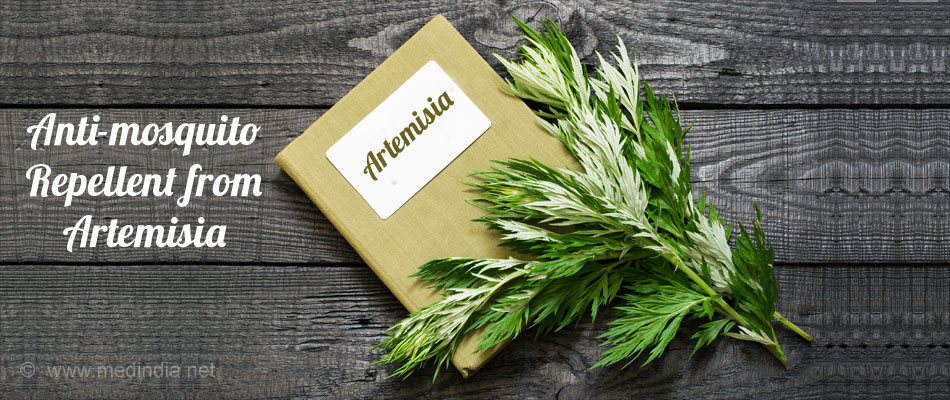
Garlic
Humans and mosquitoes alike, find the smell of garlic objectionable. Planting garlic helps repel not only mosquitoes but also cabbage looper, root maggots, peach tree borer, rabbits and Mexican bean beetle. Garlic best requires cold areas, drained soil and full sun. It is an outdoor plant though it can be grown in pots for patios and porches.
Rosemary
Rosemary or Rosmarinus officinalis plant can repel mosquitoes. It has needle-like leaves and requires very less water. Its woody scent repels carrot flies, cabbage moth, slugs, and snails. It is recommended by both PlantShed and New York Botanical Garden. It prefers full sunlight and is an ideal plant to grow outdoors.
Others
Clove Tree or Syzygium aromaticum, Lemon scented geranium or Pelargonium crispum are also an excellent choice to keep away mosquitoes. Both need partial shade to full sunlight.
Floss Flower or Ageratum houstonianum or A. conyzoides is generally grown in damp soil near rice fields. Its common name is Goat weed, Tropical whiteweed, Billy goat weed. They repel largest set of insects like ants, carrot flies, whiteflies, cabbage looper and maggots, codling moth, flea beetles and mice as well.
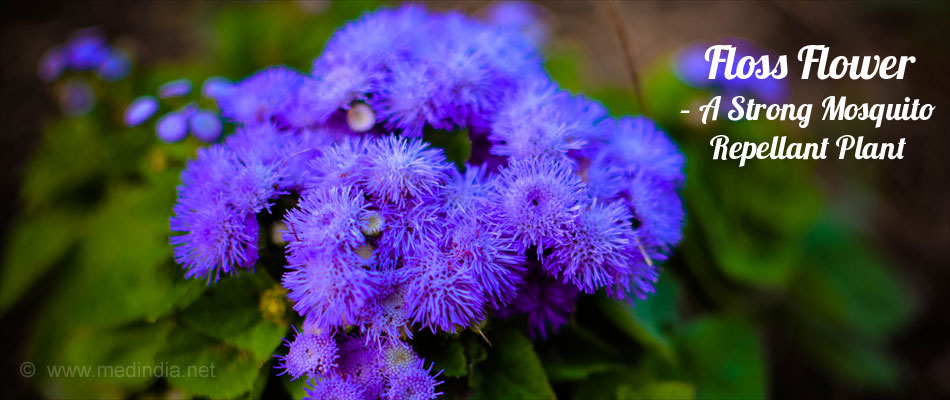
There are mosquito repellent plants both for outdoors and indoors. These pest repellent plants will help mitigate mosquito-borne diseases. For the outdoors, lemon balm, citronella, garlic, clove, peppermint, rosemary, Artemisia plants is a good choice to ward of pests. Catnip, lavender, basil, marigold, lemon scented geranium can be kept both indoors and outdoors. Like a table lamp or a table fan, you can have your own table anti mosquito plant like basil, marigold, lavenders and geraniums. Lemon balm and peppermint grow rapidly and can be grown in small containers to control them. Grow plants, make them your friends in the battle to combat the mosquitoes menace. However a DEET-based repellent can be used when needed especially if there is an endemic situation.






